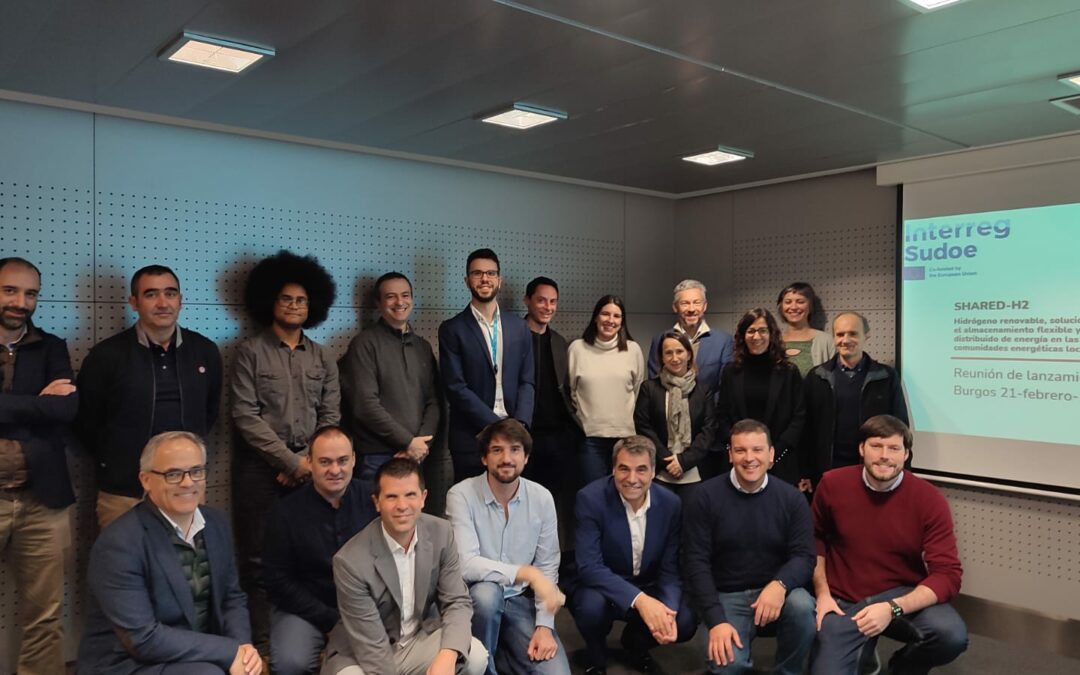The city of Burgos hosted on February 21 the launch event of the SHAREDH2-SUDOE project. Led by ITCL Technology Centre, the project brings together partners from Spain, France, and Portugal to make the most of renewable green hydrogen in rural areas.
David González, Head of the Energy Department at ITCL, presented the work plan for the first six months of the project, which is part of the first 2021–2027 Interreg Sudoe Programme call.
ITCL Technology Centre leads this European project aimed at promoting and validating the use of renewable hydrogen as a flexible and distributed energy storage solution within local energy communities. The initiative seeks to position hydrogen as a viable energy source to strengthen strategic rural areas through the development of new sustainable economic activities, while mitigating environmental impacts and improving residents’ quality of life.
The project is co-financed by the Interreg Sudoe Programme through the European Regional Development Fund (ERDF) and involves organizations and companies from Spain, France, and Portugal.
Project partners include: ITCL Technology Centre, the Department of Cartographic and Terrain Engineering of the Polytechnic School of Ávila (University of Salamanca), Bembibre City Council, Capital Energy Services S.L., and the Working Community of the Pyrenees Consortium (CTP) in Spain; the Regional Energy Agency of Alta Estremadura (Enerdura) and the Regional Energy and Environment Agency of Norte Alentejano e Tejo (ALEANATejo) in Portugal; and from France, the Association des Éleveurs de Dordogne (ASSELDOR), the École Supérieure des Technologies Industrielles Avancées (ESTIA), and the Association DERBI.
Europe is urgently seeking alternatives to replace fossil fuels, and green hydrogen can be one of them for various uses: decarbonizing the fertilizer industry, powering hard-to-electrify sectors, heavy transport, or serving as a medium- and long-term energy storage system.
Renewable Energy Storage
In this context, SHAREDH2-SUDOE aims to develop a series of demonstrative pilot projects focused on the generation and small-scale storage of renewable hydrogen from surplus renewable energy, laying the groundwork for the future. Additionally, the project will define joint strategies for the production and utilization of renewable hydrogen that contribute to the territorial balance of the SUDOE area, boosting socio-economic development, especially in rural regions.
Specific objectives include analyzing the use of renewable energy surpluses (solar and wind) for small-scale hydrogen generation, integrating renewable green hydrogen generation and storage into local energy communities in the SUDOE region, and implementing action plans in SUDOE territories to deploy economic and social development solutions based on renewable hydrogen use in local energy communities.
INTERREG SUDOE
The Interreg Sudoe Programme supports regional development in southwestern Europe by funding transnational projects through the ERDF. It promotes transnational cooperation to address common challenges in this area, such as low investment in research and development, low SME competitiveness, and vulnerability to climate change and environmental risks.

